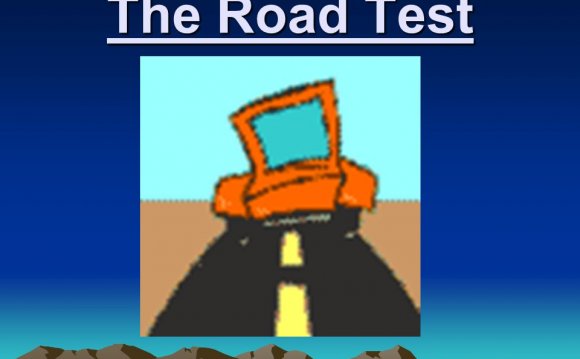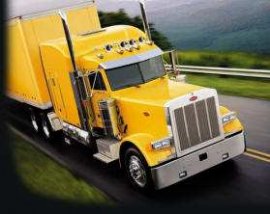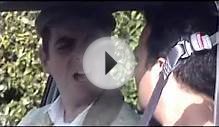
So you're getting ready to take the road test portion of your CDL exam and you're scared to death. You know you have what it takes to pass but you're afraid you'll screw it up. Will you forget to check your mirrors? Will you bump a curb? Miss a shift? Who knows??? But the scariest part may be not knowing exactly what the CDL Examiner is looking for in the first place. How good do you have to be? What will he be watching for? What's an automatic failure? Here is some advice to help you see things from the standpoint of the CDL Examiner and get through your road test with flying colors.
Automatic Failures

There are several things which may be considered an automatic failure on a road test. Some are obvious like don't get in a wreck or run a red light. But some aren't so obvious. Smaller things like hitting a curb, forgetting your turn signal, rolling backward before taking off from a stop, or not checking your mirrors properly before changing lanes.
These type of mistakes are often considered automatic failures because they're mistakes that have potentially serious consequences and you simply can't let them happen no matter how little driving experience you have. They're safety-related items that a driver must always be aware of and execute properly every time. So any serious safety violations will often times be an automatic failure.
Acceptable Mistakes
Hey, we're all human, ya know? We all make mistakes. For instance, missing a shift. Even after 15 years of driving I would still miss shifts sometimes. Every single driver in America does. It's not normally a serious safety hazard to grind a gear or need a second try to find the right RPM to get it into gear. As long as you seem somewhat proficient at shifting, a few ground gears or missed shifts will not fail you. Just keep your composure, take your time, and find a gear. No big deal.
Another acceptable mistake is taking a turn too wide. Running over a curb could do serious damage, but swinging a bit too wide usually does nothing but create a bigger safety margin. However, if you don't seem to be able to judge turns well at all and you're swinging waaaaay too wide all the time they're going to consider failing you so you can get more work in. But when in doubt, swing a little wider than necessary. A few inches too tight and you hit the curb and fail. A bit wide is no big deal.
As long as you're not creating any serious concerns about safety, the little mistakes like missed shifts and swinging a bit wide are no big deal.
Non-Driving Considerations
Believe it or not, one of the main factors that could push the examiner one way or the other at the end of the exam is something completely outside the realm of physically driving the truck - your demeanor. Trucking is a very high-pressure occupation. You're in heavy traffic, terrible weather, and surrounded by minivans full of children in an 80, 000 pound rig on a regular basis. We all understand the consequences of even one brief moment of inattention. But equally as devastating is the inability to maintain your composure under pressure.
INTERESTING VIDEO











